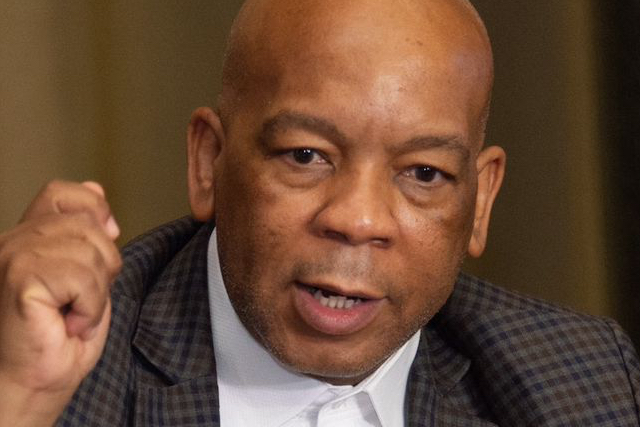Cape Town – Minister of Electricity Kgosientsho Ramokgopa has announced government plans to accelerate the expansion of transmission lines to the Cape provinces, aiming to unlock approximately 2,335MW of energy in the short term.
The lack of transmission infrastructure has hindered renewable energy projects from contributing to the grid.
“In the short-term, we can unlock about 2 300MW of stranded electrons. That is the route that we are taking and as the minister, I’ll be making the necessary announcement. We already know the corridors where we are going to get this 2 335MW. It’s in Upington, the Juno Gromis 400kV line and all that in the Nama transformer in Upington (sic).
“Once we make those interventions, we get an additional 2 300MW. We don’t have to wait for 10 years. It’s the interventions that we are making now but we need to design a bespoke financing solution to help us to address the issues of transmission,” the minister said while speaking during an engagement with business stakeholders in KwaZulu-Natal on Tuesday.
[WATCH] Electricity Minister Dr Kgosientsho Ramokgopa is engaging with business leaders in Durban about energy challenges and possible interventions. He says #Loadshedding is a constraint in growing South Africa’s economy.#Newzroom405 pic.twitter.com/8hqhOA8bm7
— Newzroom Afrika (@Newzroom405) February 20, 2024
In the longer term, there are plans to build 14,000km of new transmission lines to connect renewable energy projects and strengthen the grid.
Ramokgopa also highlighted the growing interest in rooftop solar, with connected rooftop installed capacity increasing from 983MW in 2022 to 4,412MW by mid-2023.
“Our anticipation is that the rate of growth will exceed what we would have seen in the previous calendar year. Two things are an impediment to an aggressive rollout of roof top solar. Firstly, it’s the availability of equipment.
“South Africa, compared to many countries in the world, has had the biggest import of solar panels. We have had conversations with some of the biggest manufacturers across the globe – invariably from China – to localise production here. We are confident we are going to do that.
“The second impediment is the skills to install these solar panels. We will be recruiting about 25 000 people to be able to install. In every crisis, there is an opportunity and that opportunity must be taken. We are looking to industrialise and… we are looking to create these new skills so that we get people into jobs,” he said.
Follow African Insider on Facebook, Twitter and Instagram
Picture: X/@GovernmentZA
For more African news, visit Africaninsider.com
Compiled by Betha Madhomu


